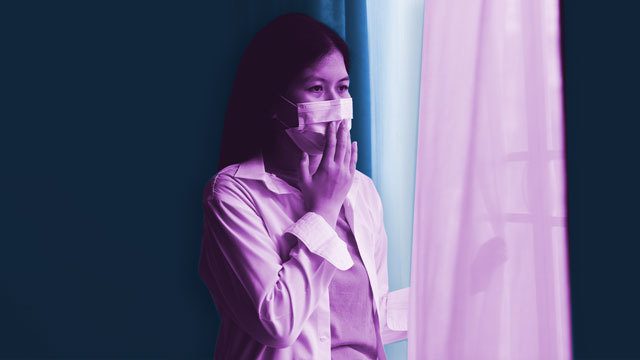SUMMARY
This is AI generated summarization, which may have errors. For context, always refer to the full article.

In just a few weeks, we’ve seen the coronavirus disease infect a fraction of our population at an exponential rate. As time goes by, it seems as if this virus is beginning to strike closer and closer to home. The longer this pandemic goes on, the more we hear about people we know becoming afflicted by COVID-19. As this whole situation continues to snowball, it becomes more important to be informed with facts to guide us on what to do when a loved one gets COVID-19.
Home quarantine
The World Health Organization has found that 80% of confirmed COVID-19 cases can be classified as mild to moderate. Following the “Management Algorithm for Probable or Confirmed COVID-19 Pneumonia” of The Philippine Society for Microbiology and Infectious Disease, mild to moderate cases are likely to be managed through home quarantine, as testing is only recommended for those experiencing severe symptoms. The elderly with COVID-19 symptoms, whether mild or severe, and those who have underlying medical conditions, however, should automatically get tested for possible infection. (READ: When should you get tested for coronavirus?)
Under the Department of Health guidelines, persons under monitoring (PUMs) who have mild to moderate symptoms can go into home quarantine. On the most basic level, home quarantine revolves around the isolation of an individual for a fixed period of time.
A sense of connectedness under quarantine
Being forced to isolate a loved one during a time plagued with anxiety can be difficult for all parties involved– it can affect one’s sense of well-being.
However, anxiety over physical isolation can be eased by coming up with innovative ways of maintaining social connection. If you have a family member in isolation at home because of this virus, you have to stay away from that person, but that doesn’t mean that you can’t stay connected. Technology has done an excellent job of connecting people, and we can use the same technology in situations like this!
Schedule a group call via Zoom, Messenger, Viber, or whatever. Play an online game together, whether it be on mobile, PC, or gaming console.
Maintaining a sense of normalcy
The goal of home quarantine is to keep people being monitored for the coranavirus disease away from others until they are cleared. Their families are normally anxious and concerned about the situation, but excessive worrying can hurt one’s physical and mental health. (READ: Keep calm and cope: How to stay mentally healthy during coronavirus crisis)
Maintaining a sense of normalcy despite the situation can help protect oneself against physical and emotional stress. Creating a new routine can help! Some of the things you can incorporate into your routine are as follows: Agree on a time when you and your loved ones can come together online. Allot a couple of hours per day to meditation or prayer. Schedule game night throughout the week. Heck, you can even give yourself a few minutes each day to worry!
In times like this, it’s important to allow yourself to express how you truly feel, but it’s just as necessary to manage these feelings for your own physical and mental well-being. If a loved one is positive with COVID-19, we become better helpers and stronger support when we also take care of ourselves.
When a case is severe
The tips I’ve shared are most appropriate in situations when a loved one has COVID-19 but is deemed to be treated through home quarantine. In reality, however, there are cases wherein people have severe symptoms and, therefore, must be treated in the hospital while being separated from their families. In such instances, the ambiguity of the full situation may result in feelings and thoughts associated with anticipatory grief – and tackling grief requires a whole other discussion altogether. – Rappler.com
This is Part 1 of our two-part series on what to do when a loved one gets COVID-19. In Part 2, we discuss managing grief when cases are severe and how to cope when a loved one passes away due to COVID-19.
JR is a practicing psychologist and the Director for Personnel Management and Development in Gray Matters Psychological and Consultancy Inc. Most of his cases involve depression, anxiety, self-harm, adjustment difficulties, and career-related issues. For consultations with Gray Matters, check out their website here and their online counseling portal here. He is also a lecturer in the Psychology Department of Ateneo de Manila University, where he is currently taking his Ph.D. in Psychology. When he isn’t ‘psychologizing’ and teaching, he likes spending his time boxing and making music with his band, Ars.
Add a comment
How does this make you feel?
There are no comments yet. Add your comment to start the conversation.